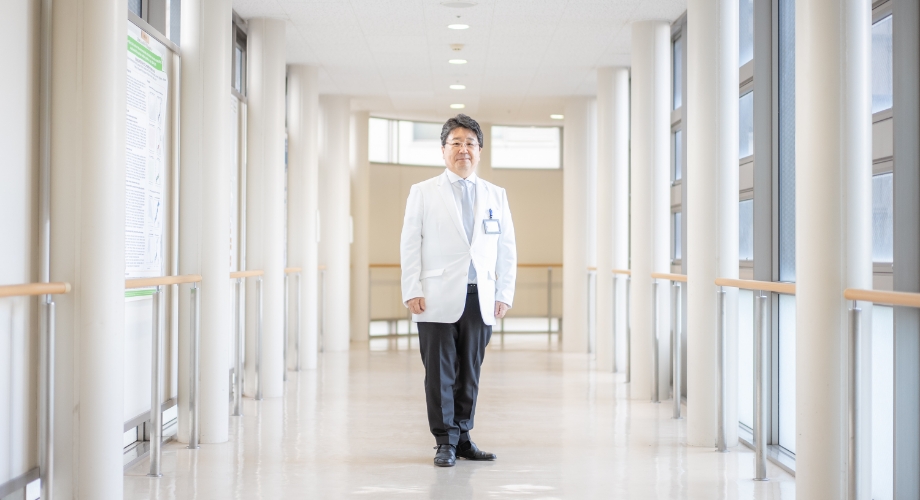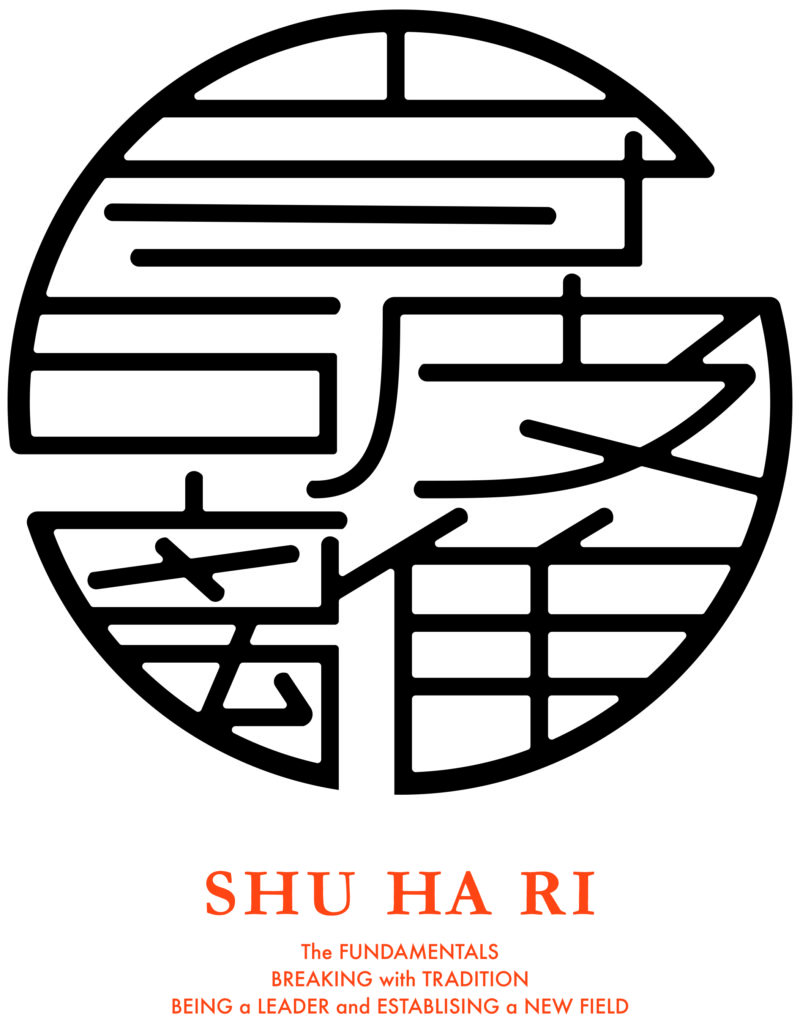Greeting

I am Shuji Terai. Since January 1, 2015, as a successor of the first Professor Emeritus Fumihiro Ichida, the second Professor Emeritus Hitoshi Asakura, and the third Professor Emeritus Yutaka Aoyagi, I have been appointed to the post of Professor of the Division of Gastroenterology and Hepatology (formerly the Third Department of Internal Medicine), Graduate School of Medical and Dental Sciences, Niigata University. With the efforts made by the successive professors and the seniors, the Division of Gastroenterology and Hepatology, Niigata University, has left a major mark on the field of Gastroenterology & Hepatology in Japan. I am committed to inheriting the tradition and further developing it for our promising division.
Evolution and Prospects of Gastroenterology and Hepatology
With the development of minimally invasive treatment techniques due to the advancement of endoscopic technology, the field of Gastroenterology & Hepatology has now entered a new age, in which viral hepatitis or hepatitis C virus and Helicobacter pylori, which are the main causes of hepatic carcinoma and gastric carcinoma, can be completely controlled. It is expected that there will be an increase in the incidence of cancer related to metabolic syndrome (e.g., Barrett’s adenocarcinoma, colorectal cancer, pancreatic cancer, liver cancer), as well as inflammatory bowel disease. The effective management of these diseases requires the development of preemptive medicine, innovative cancer therapies, and regenerative medicine using new biomaterials and cell therapy for liver cirrhosis and gastrointestinal stenosis. It is also important to understand the inter-organ network. In addition, in a super-aging society, it is important to devise ways for cancer patients to eat well until the end of their lives and to develop exercise therapy as a measure against sarcopenia, in order to provide advanced cancer treatment. Therefore, we believe that it is necessary to go back to the basics of digestion, absorption, and metabolism, and conduct medical treatment focusing the whole body as well as the organs. From this viewpoint, it is significant to evaluate and control intestinal environment.
Our research theme is “Development of Diagnostic and Therapeutic Methods for Refractory Gastrointestinal Diseases”. Our research aims to develop new preventive, diagnostic, and therapeutic methods by elucidating pathophysiology and making full use of genomics and cell biology. We are engaged in clinical and research activities with the desire to “cure” and “change the future” in response to patients’ “desire to be cured” of their illnesses. Regenerative medicine is one of the most important tools in our efforts. Since my previous position, I have been actively involved in the development of fibrosis-improving and regenerative therapies for liver cirrhosis. Based on the data from clinical trials (company trials and investigator-initiated trials) and basic experiments conducted in our department for liver cirrhosis using mesenchymal stem cells derived from allogeneic adipose tissue, we found that extracellular vesicles (exosomes) could be a key player in the treatment of liver cirrhosis. Exosomes are expected to have a promising future not only in liver diseases but also in many other medical fields. However, the promotion of exploratory medicine based on appropriate quality control and efficacy verification is now an urgent issue. In the Japanese Society for Regenerative Medicine, I compiled the “Guidance on Clinical Application of Extracellular Vesicles” as the chairperson. Internationally, I am a member of the Exosomes Committee and the Gastrointestinal Committee of the International Society for Cell & Gene Therapy (ISCT), and am actively involved in the international standardization of extracellular vesicles. I am actively involved in the international standardization of extracellular vesicles. While advancing basic and clinical research, we are also focusing on investigator-initiated clinical trials and translational research. In addition, we are collaborating with local companies to develop endoscopic devices. EndoGel™, a training model for endoscopic submucosal dissection (ESD) and oral endoscopic myotomy (POEM), won the Invention Grand Prize. And we have commercialized EndoFlower, an endoscopic device to safely remove foreign body. We have also developed a new “portable toilet” for nursing care.
“Sun Ship”, Philosophy of our division
The logo of our division is “Sun Ship”. This logo was designed based on the philosophy of “examining all digestive organs” and “emphasizing the network among digestive organs”. It uses the school colors of Niigata University, green, and its opposite, Hermes orange. The motif is a sailing ship (Ship), combined with “III”, the symbol of Third Department of Internal Medicine (the predecessor of our division) at the base.” The “Sun” means both the sun of star and three, “san” in Japanese.

Our division provides medical care for not only acute and severe disease but intractable conditions. The representative effort is establishment of practical network systems to treat acute liver failure and severe acute pancreatitis in Niigata Prefecture. To become a comprehensive gastroenterologist and hepatologist, who can deal with all digestive organs and get close to patient’s feeling, we recommend acquisition of four qualifications, namely, Board Certified Doctor of Internal Medicine, Board Certified Gastroenterologist of The Japanese Society of Gastroenterology, Board Certified Fellow of the Japan Gastroenterological Endoscopy Society and Board Certified Hepatologist of the Japan Society of Hepatology. You can also acquire Board Certified Physician for Regenerative Medicine towards next generation medicine.
In the 10 years since I became professor in Niigata University, until the year 2025, 84 medical doctors have joined our division, and 73 people have obtained Ph.D. In addition, 49 of our faculty members have become medical directors or higher in Niigata Prefecture, and 41 have become independent as family doctors. In addition, we have produced two professors of national universities (Department of General Medicine, Niigata University School of Medicine: Department of Gastroenterology and Hepatology, Faculty of Medicine, University of Yamanashi.)
Training of next generation leaders and coordinators by the spirit of “Shu-Ha-Ri”

I was a practitioner of judo in my undergraduate days (now black belt). In my opinion, “Shu-Ha-Ri,” (which is a concept in Japanese that implies three stages of performance ability: following the fundamentals; breaking and improving them; and advancing them to a new stage independently), is important in acquiring skills of medical care as a physician, in the same way as in the acquisition of martial arts. As you know, of “Shu-Ha-Ri”; “Shu” is to acquire the fundamentals while sticking to them (follow the fundamentals); “Ha” is to apply the acquired fundamentals to something and acquire one’s own style (break the fundamentals); and “Ri” is to create a novel style away from “Shu” and “Ha” (dissociate oneself from the fundamentals).
Based on this concept, I provide an explanation to the members of our department as follows: “Shu” is to acquire the essential basics required of “General Gastroenterologist” (who create a form to see and manage all digestive system diseases); “Ha” is to develop next-generation treatment from Niigata University by collecting the wisdom (secure high specialty and develop new diagnosis and treatment methods(Clinician-Scientist)); and “Ri” is to be a leader who will work actively in Japan and who will make a mark on the world stage from our department. Diversity with an international perspective is important, and over the past 10 years we have sent post-graduate students to seven different foreign universities, one to Ministry of Education, Culture, Sports, Science and Technology. They have gained experience in different fields and are now active members of our staff. There are many seniors with rich experience and affection belonging to the society “Domonkai”. In this blessed environment, we will create opportunities to gain the wisdom of “Mon-Shi-Shu (listening, thinking, and practicing in Buddhism),” and aim to create division that will attract outstanding human resources from Japan and abroad.
To young doctors and medical students
The spirit of “Itto Shogu” is important in medicine and research. The light by individuals’ activity and effort enlightens the whole society, we believe. Let’s set sail towards the exploration of new areas of gastroenterology and hepatology with the spirit of “Itto Shogu”.
Shuji Terai, M.D.,Ph.D.
Professor and Chairman
Division of Gastroenterology and Hepatology,
Graduate School of Medical and Dental Sciences,
Niigata university.
【REFERENCE】
- President of The 23rd Congress of the Japanese Society for Regenerative Medicine (Written in Japanese)
- Guidance on the clinical application of extracellular vesicles
- Direction of Liver rehabilitation (Written in Japanese)
【Promotion Movie】